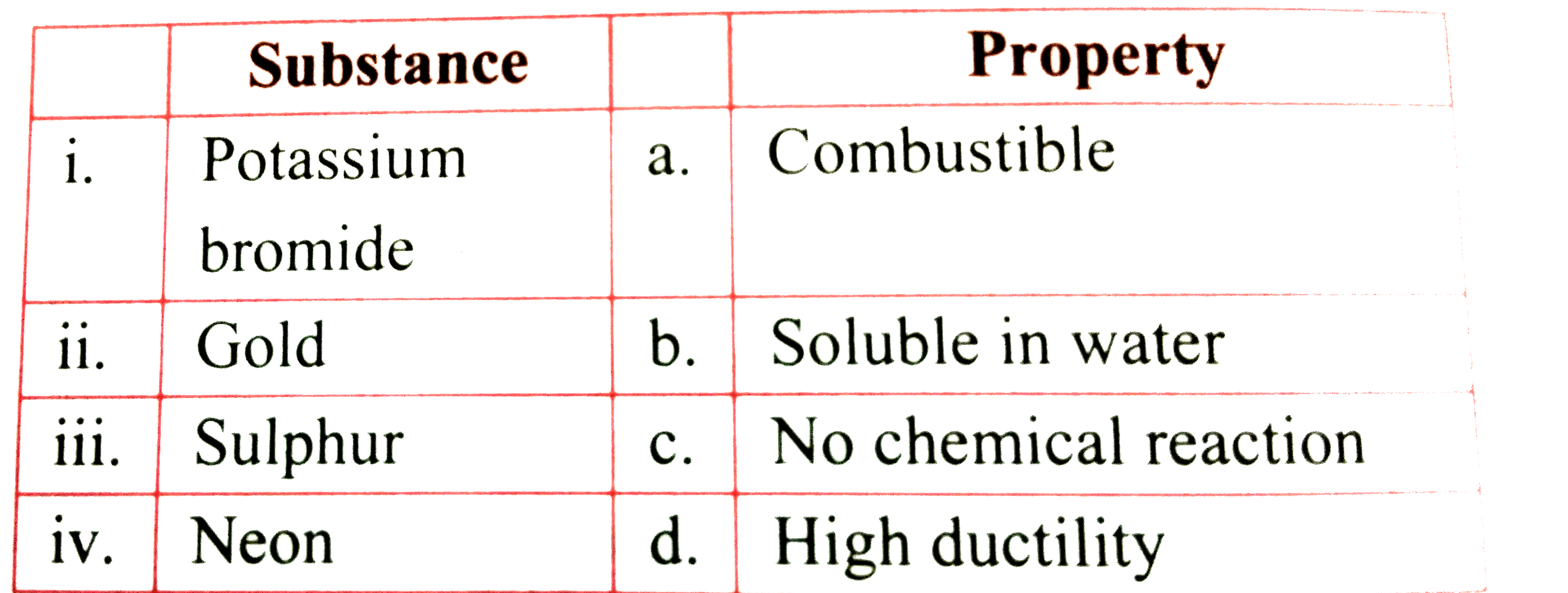The reaction in which a substance or substances undergo change to produce new substances with new properties is called
A biochemical reaction
A nuclear reaction
A physical reaction
A chemical reaction
The correct Answer is:D
Step-by-Step Solution:
1. Understanding the Question: The question asks for the term that describes a process where substances change to form new substances with different properties.
2. Identifying Key Concepts:
- A reaction involves substances undergoing change.
- New substances are formed.
- These new substances have new properties.
3. Defining the Term: The process that fits this description is known as a chemical reaction.
4. Explanation of Chemical Reactions:
- In a chemical reaction, the original substances (reactants) undergo a transformation to create new substances (products).
- The properties of the products are often different from those of the reactants.
5. Eliminating Incorrect Options:
- Biochemical reactions involve biological processes but still fall under chemical reactions.
- Nuclear reactions involve changes in the nucleus of atoms and are not what the question describes.
- Physical reactions involve changes in physical properties but do not result in the formation of new substances.
6. Conclusion: Therefore, the correct answer to the question is that the reaction in which a substance or substances undergo change to produce new substances with new properties is called a chemical reaction.
---
- A reaction involves substances undergoing change.
- New substances are formed.
- These new substances have new properties.
- In a chemical reaction, the original substances (reactants) undergo a transformation to create new substances (products).
- The properties of the products are often different from those of the reactants.
- Biochemical reactions involve biological processes but still fall under chemical reactions.
- Nuclear reactions involve changes in the nucleus of atoms and are not what the question describes.
- Physical reactions involve changes in physical properties but do not result in the formation of new substances.
Topper's Solved these Questions
- CHEMICAL REACTIONS AND EQUATIONSBOOK - OSWAL PUBLICATIONCHAPTER - CHEMICAL REACTIONS AND EQUATIONSEXERCISE - ASSERTION AND REASON BASED MCQs
8 Videos
- CHEMICAL REACTIONS AND EQUATIONSBOOK - OSWAL PUBLICATIONCHAPTER - CHEMICAL REACTIONS AND EQUATIONSEXERCISE - CASE-BASED MCQs
29 Videos
- CHEMICAL REACTIONSBOOK - OSWAL PUBLICATIONCHAPTER - CHEMICAL REACTIONSEXERCISE - BOARD CORNER (Short Answer Type Questions)
3 Videos
- DIKSHA QUESTIONS BOOK - OSWAL PUBLICATIONCHAPTER - DIKSHA QUESTIONS EXERCISE - PERIODIC CLASSIFICATION OF ELEMENTS (MULTIPLE CHOICE QUESTIONS)
13 Videos
Similar Questions
Knowledge Check
Substances which catch fire are called
AAcidsBBasesCCombustibleDBurnersThe substance that takes part in reaction is called
AradicalBproductCreactantDionIf two substances interact to produce a change they will do so
Aunder any conditionBno matter what kind of interaction takes placeConly if they are in close contactDonly if the interaction is under the favourable conditions.
Make pairs of substances and their properties

View SolutionA _____ is a substance which undergoes combustion to produce heat.
View SolutionThe new substance produced when two substance react
View SolutionAssertion : A chemical reaction is a process in which the original substance(s) lose its nature and identity and form new substance(s) with different properties.
Reason : Breaking of the chemical bonds and formation of new chemical bonds is responsible for the occurrence of a chemical reaction.
View SolutionThe organisms which produce antimicrobial substances are called
View Solution
